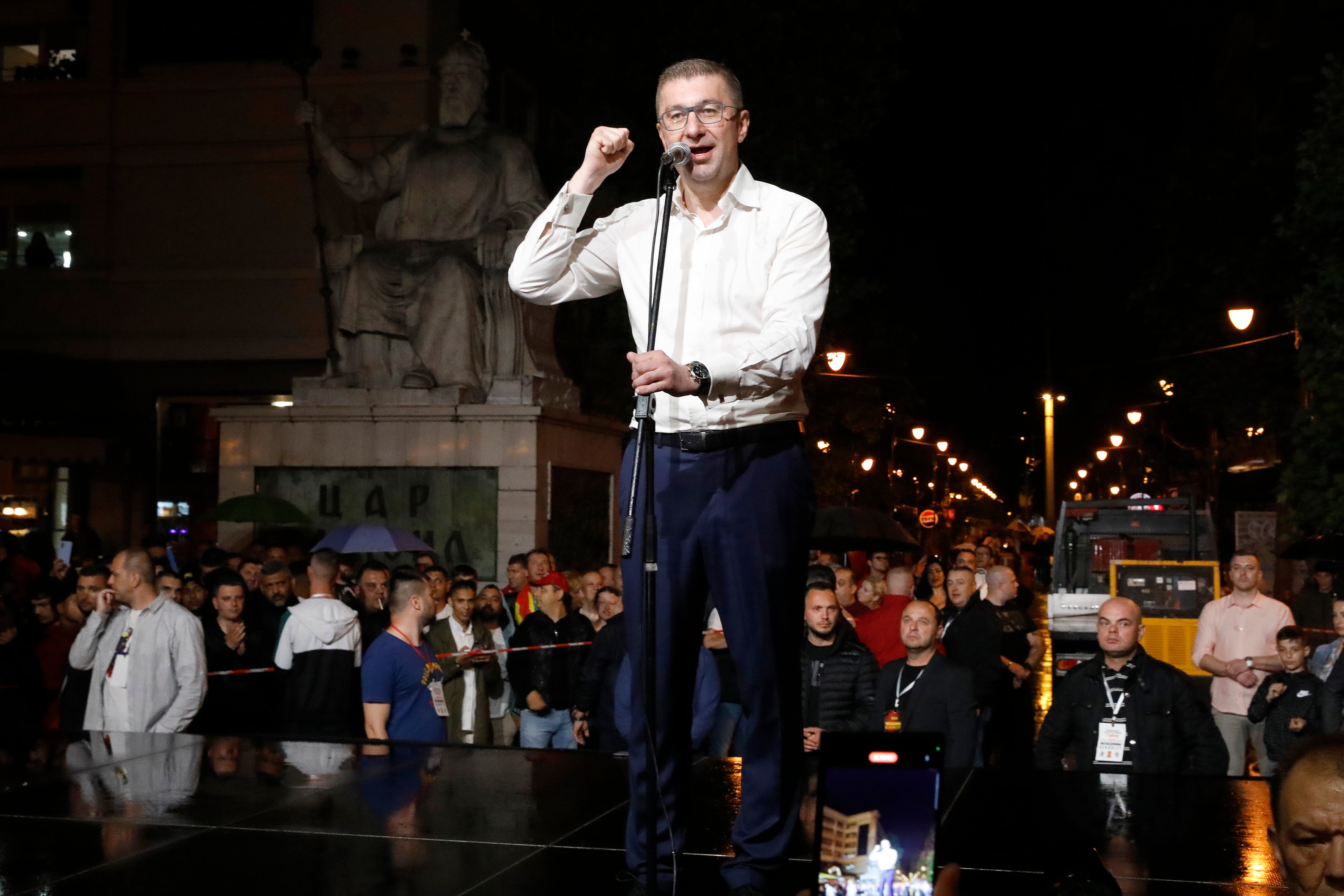North Macedonia's parliament prepares to vote on proposed center-right government
North Macedonia’s parliament began a two-day debate leading up to a vote on the new government proposed by a center-right party that won May’s national elections

Your support helps us to tell the story
From reproductive rights to climate change to Big Tech, The Independent is on the ground when the story is developing. Whether it's investigating the financials of Elon Musk's pro-Trump PAC or producing our latest documentary, 'The A Word', which shines a light on the American women fighting for reproductive rights, we know how important it is to parse out the facts from the messaging.
At such a critical moment in US history, we need reporters on the ground. Your donation allows us to keep sending journalists to speak to both sides of the story.
The Independent is trusted by Americans across the entire political spectrum. And unlike many other quality news outlets, we choose not to lock Americans out of our reporting and analysis with paywalls. We believe quality journalism should be available to everyone, paid for by those who can afford it.
Your support makes all the difference.North Macedonia's parliament began a two-day debate leading up to a vote on the new government proposed by a center-right party that won May's national elections.
Heading the proposed government is Hristijan Mickoski, a 46-year-old former engineering professor who has pledged to continue his center-left predecessors’ efforts to shepherd the small Balkan NATO member into the European Union.
But Mickoski's more nationalist tone could alienate neighboring Bulgaria and Greece, both EU members with the power to hinder his country's accession to the 27-nation bloc.
Mickoski is expected to win Sunday’s vote easily, having secured the support of 78 lawmakers in the 120-seat house.
His VMRO-DPMNE party heads a coalition that gained just over 43% of the vote in the May 8 elections, winning 58 seats — three short of a governing majority. Mickoski struck a coalition deal with the ethnic Albanian Vredi, or Worth, party and the small leftist ZNAM, securing a comfortable majority.
Under the agreement, VMRO-DPMNE will have 15 ministerial positions, while Vredi and ZNAM will get six and two, respectively.
Mickoski served as an advisor on energy matters to a previous VMRO-DPMNE government in 2015-2017.
His key domestic challenges in government will include enhancing the rule of law while addressing corruption and poverty and reviving a sluggish economy.
But the main issue will be North Macedonia’s path to the EU, which is being blocked by Bulgaria over its demands that the candidate amend its constitution to recognize a Bulgarian minority. The previous, center-left government promised to make the change, but VMRO-DPMNE has denounced the vow as a “capitulation (to) Bulgarian dictates.”
North Macedonia entered NATO in 2019, following a historic deal with Greece that ended a decades-old dispute over cultural heritage and history and saw the small country change its name from Macedonia to North Macedonia. But VMRO-DPMNE has already made clear its distaste for the agreement, which could jeopardize Athens' support for its neighbor's EU accession.
North Macedonia’s new president Gordana Siljanovska Davkova — a VMRO-DPMNE candidate — riled Greek and EU officials by calling her country Macedonia when she took the formal oath of office. She later insisted that she had a “human right” to refer to her country as she liked.
Mickoski said recently he will use the new constitutional name — North Macedonia — during the oath and in all official meetings and events. But he added that he would stick to Macedonia in informal communications.
EU membership negotiations with North Macedonia and fellow-candidate Albania began in 2022 and the process is expected to take years.
Under parliamentary rules, the vote on the government must be held by midnight on Sunday.